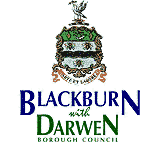






Key Stage 1 Rights, Rules & ResponsibilitiesYear 1 And 2 Making Rules
Return to Key Stage 1 Framework
Lesson Plan
Teaching Objectives Possible Teaching Activity Learning Outcomes Children should learn:
- what is meant by the word 'rules' and how rules can help us to know what we can and cannot do
- the different rules that are in place at home and in school
- who makes the rules and what happens if rules are broken
- Children will learn the importance of having rules and how they can help us decide what to do
- Children will also learn about the rules that exist in their classroom and at schools and what can happen if they break the rules
Teachers Notes
What are rules and why do we need them?
Background Notes
In order for people to live together, it is essential that rules exist to ensure everyone is treated fairly and in the same way.
A set of rules can tell us two things:
1) what we must or are allowed to do, eg - you must wear school uniform.
2) what we are not allowed to do, eg - you must not throw stones.
Having a set of rules means that everyone who has to follow the rules knows what they can and cannot do.
Suggested Teaching Activity
Classroom Discussion
Talk to the children about some of the different rules that exist in their lives. Ask the children to write about:
- a rule that they think is fair and why they are happy to follow it; OR
- a rule that they do not think is fair and the reasons why they think it is unfair
�
Background Notes
In order for family life to run smoothly, it is important that a set of rules is established. This will ensure that everyone in the family knows what they can and cannot do and what is expected of them.
Examples:
- Who does the washing up
- What time you should go to bed
- Who takes the dog for a walk
- Who feeds the rabbit
Suggested Teaching Activity
Classroom Discussion and Activity
Ask the children about different things at home and discuss what they are and are not allowed to do. How many of them have to help with the washing up or the housework? Make a list of tasks around the home and find out how many children help with each of the different tasks. Draw this up on to a bar chart to show how many children get involved in each activity.
�
What rules are there in school?
Background Notes
At school, the Head Teacher and other teachers must take care of children and are, therefore, allowed to make rules and give fair and reasonable punishment.
Rules are essential in order for a school to run smoothly.
As all of the students (and teachers) have different sets of rules at home, there is a set of rules that apply to you when you are in school which may differ from what you are allowed to do at home.
Examples:
- No running in the corridor
- No fighting
- No talking in class when the teacher is talking
- No throwing things
Suggested Teaching Activity
Class Discussion and Display
Take photographs of the children around the school - in class, in the playground, in the dinner hall - a variety of examples of what it looks like to follow the rules. Ask the children to discuss what is happening in the photos, what might have happened before and after the photos and which rules are being followed. Make a display of rules with photos of the class around them.
�
Who makes the rules and what can happen if these rules are broken?
Background Information
All rules are made by somebody, whether it is a parent or a teacher. Rules are made for a reason, usually to make sure that children are kept safe and well and do not get into any trouble.
For rules to work, then it is necessary for someone to be in charge of making sure they are followed and if they are not followed, then something needs to happen to ensure that the rules are not broken again.
Examples
� Home School Example of rules that exist Must be home by 9.30pm Must not drop litter Who makes the rules? Parents/Carers
The whole family
Head Teacher
Teachers
School Council
Who makes sure the rules are followed? Parents/Carers
The whole family
Friends
Neighbours
Head Teacher
Teachers
Pupils
What happens if rules are broken? �Punishment
Must apologise
Punishment
Must apologise
�
![]()
Blackburn with Darwen Borough Council, Trading Standards Service, 3-5
Salford, Blackburn, Lancashire BB1 6HG
Telephone:
(Consumer Advice) 08454 040506 (Trader Advice) (01254) 222502
Fax: (01254) 698312
Internet World Wide Web
http://www.tradingstandards.gov.uk
Electronic
Mail:
[email protected]
Copyright � Blackburn with Darwen 2007





